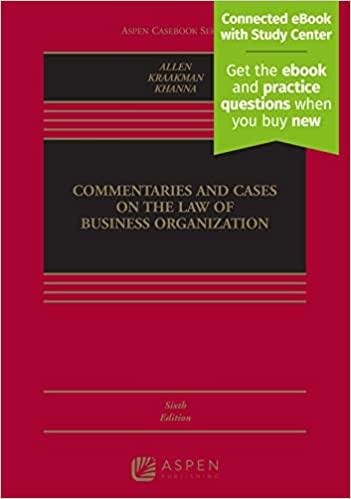Question
Question 1: John Alien, a native and citizen of England, entered the U.S. under a non-immigrant visa in April 2004. During his stay in the
Question 1: John Alien, a native and citizen of England, entered the U.S. under a non-immigrant visa in April 2004. During his stay in the U.S., he fell in love with a U.S. Citizen, married, and adjusted his status to a Lawful Permanent Resident. He became an LPR in April 2006. He has two children (ages 3 and 5) from the marriage and owns a beautiful home in Florida. He is an IT specialist for a very large military defense contact corporation and earns approximately $130,000 per year. He has a growing 401(k) and excellent health insurance for his family through his job. With his robust salary, his wife is able to stay at home and raise their two children. He has an impeccable reputation in the community and is active in his local church and his children's school activities. In May 2016, John was arrested for possession of cocaine. He has no prior criminal history. He pleaded guilty to the crime and was placed in immigration removal proceedings for the drug conviction.
The Notice to Appear charges John with violating 237(a)(2)(B)(i) of the INA, as having been convicted of a drug offense. You are the immigration judge presiding over his removal hearing.
- Can John be placed in removal proceedings? Will you as a judge sustain the charge of removabilty?
- If John is removable and the proceedings are proper, what forms of relief from removal are available to John? If any relief is available, would you grant such relief? Why?
Decide the case as the judge.
Question 2: Teddy lives in Los Angeles, having arrived through crossing the Mexican border unlawfully 10 months ago. Teddy mostly gets by doing odd jobs and whatever he can do to make some cash. He would like to obtain work authorization so he can get a steady job and earn some more money, afford a place to live, and improve his overall standard of living. His friend, who has a work permit and a good job, tells Teddy he got his work permit after he was granted asylum in the U.S. Interested in obtaining asylum for himself, Teddy shows up at your law office asking what he has to do to get asylum.
- What specifically would you tell Teddy regarding what he needs to show to obtain asylum? After your explanation, Teddy says he's not sure he would qualify, but that he's a "great storyteller" and since there are no strict documentary requirements for asylum, he's sure he could convince the asylum office to grant his case. Teddy asks you to assist him in preparing his application and prepping for his asylum interview.
- How should you respond to Teddy? Will you assist him? What additional questions would you ask, or additional information would you gather. After you speak more with Teddy, he asks your advice on what could happen to him if he were to make up a false narrative in an attempt to obtain asylum.
- What would you tell Teddy?
Please explain your responses in detail.
Step by Step Solution
There are 3 Steps involved in it
Step: 1

Get Instant Access to Expert-Tailored Solutions
See step-by-step solutions with expert insights and AI powered tools for academic success
Step: 2

Step: 3

Ace Your Homework with AI
Get the answers you need in no time with our AI-driven, step-by-step assistance
Get Started


